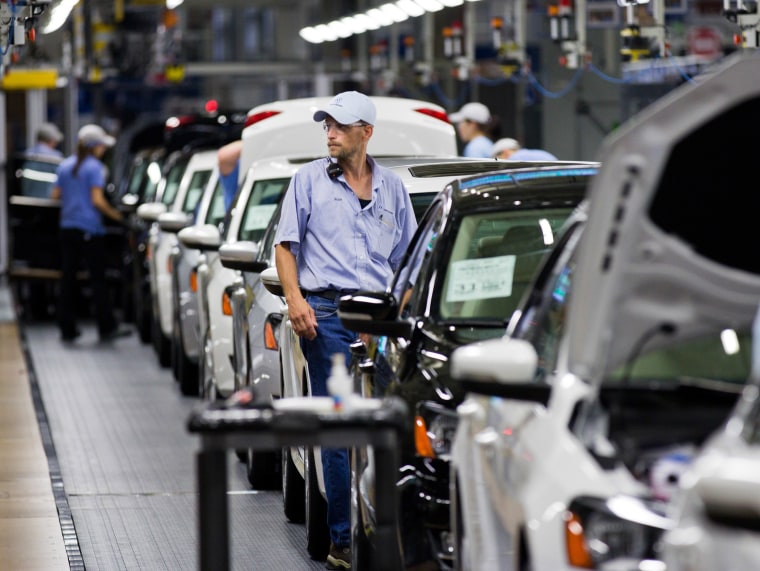During last month's unionization vote at a Volkswagen plant in Chattanooga, Sen. Bob Corker (R-Tenn.) intervened to a surprising degree. The senator's strong opposition to unions was hardly a secret, but Corker went further -- during the three-day voting process, the Republican lawmaker said he had secret knowledge that the VW plant would manufacture a new product line, but only if employees rejected a union.
Though it's difficult to know how much of an effect, if any, Corker's comments made on the outcome, the unionization vote was
defeated two days later. Last week, the United Auto Workers
cried foul, asking the National Labor Relations Board (NLRB) to order a new election because of the interference from Corker and other GOP officials (some Republicans in the state legislature
warned they would oppose future incentives for the plant if workers unionized).
Corker turned to the
Wall Street Journal this week to characterize himself as the target of intimidation -- the United Auto Workers union,
the senator argued, is trying to stifle his free speech.
Unfortunately, the UAW has chosen to ignore the employees' decision and has filed objections with the National Labor Relations Board, charging that elected officials like me should not be allowed to make public comments expressing our opinion and sharing information with our constituents. It is telling that the UAW complaint does not mention President Obama's public statement urging the employees to vote for the union. If the National Labor Relations Board upholds these objections, it would be an unprecedented assault on free speech. In every similar case where a company has remained neutral in a union-election drive, members of Congress on both sides of the aisle have voiced their opinions. The NLRB has ruled repeatedly that public officials have the right to make statements taking sides in a union election, and that those statements do not justify overturning the outcome of that election.
The point Corker seems reluctant to acknowledge is that he did more than just voice his opinion. If the senator and other Republican officials had said, loudly and firmly, that they hoped unionization would lose, the UAW would likely have a much weaker case.
But that's not what happened. Corker waited until voting was underway when he made a specific claim -- which flatly contradicted VW's stated position -- that seemed intended to influence the outcome of the election. Labor-law experts were "
shocked" by the senator's brazenness.
Corker is not, in other words, the victim here.
If Corker wants to exercise his "free speech" rights on this subject, he should have the guts to promote legislation in Congress repealing the NLRA and other collective bargaining laws, and try to make America union-free as a matter of public policy. The idea that Tennessee and other southern states should rely on the No Unions Here! label as a comparative marketing chip would, after all, consign American citizens elsewhere to the slavery of collective bargaining and the indignity of union-negotiated wages and benefits. As a U.S. Senator, Corker should aim higher.
t this point, there's no reason to think he will.
